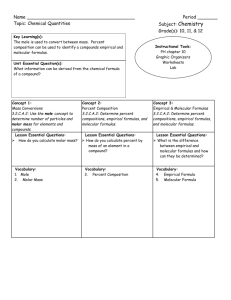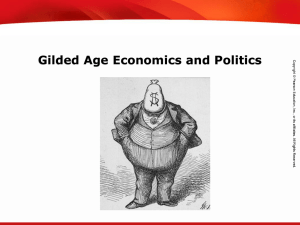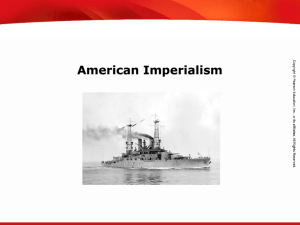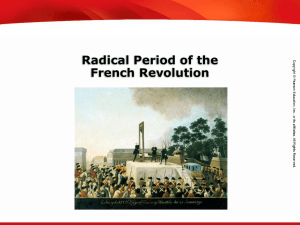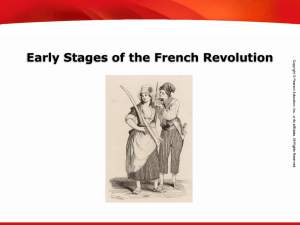Effects of Global Contact
advertisement
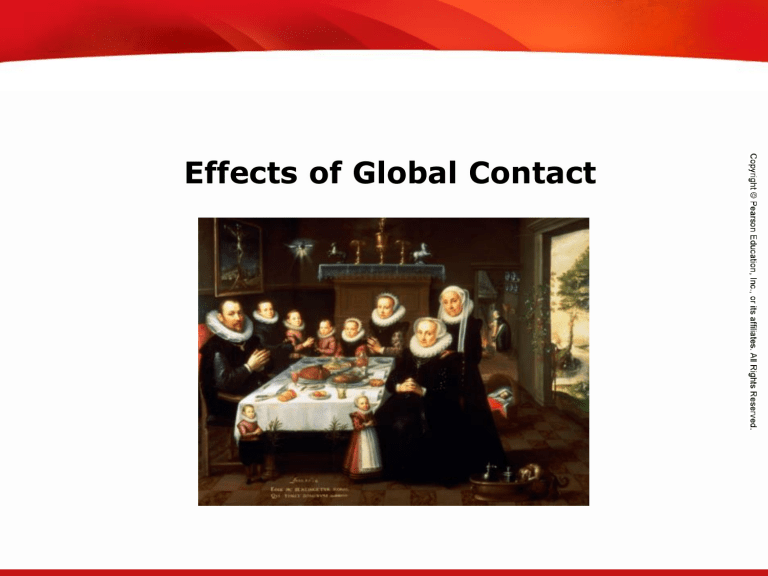
TEKS 8C: Calculate percent composition and empirical and molecular formulas. Effects of Global Contact TEKS 8C: Calculate percent composition and empirical and molecular formulas. Objectives • Explain how European exploration led to the Columbian Exchange. • Analyze the commercial revolution. • Understand the impact of mercantilism on European and colonial economies. TEKS 8C: Calculate percent composition and empirical and molecular formulas. Terms and People • Columbian Exchange – a vast global exchange of goods, people, plants, and animals that began with Columbus and profoundly affected the world • inflation – a rise in prices that is linked to a sharp increase in the amount of money available • price revolution – the period in European history during the 1500s when inflation rose rapidly • capitalism – an economic system in which most businesses are owned privately TEKS 8C: Calculate percent composition and empirical and molecular formulas. Terms and People (continued) • entrepreneur – a person who takes on financial risks to make profits • mercantilism – an economic policy in which it was believed that a nation must export more goods than it imports to build its supply of gold and silver • tariff – a tax on imported goods TEKS 8C: Calculate percent composition and empirical and molecular formulas. How did the voyages of European explorers lead to new economic systems in Europe and its colonies? Voyages of exploration in the 1500s and 1600s led to a period of European domination of the globe. The exchange of people, goods, plants, and animals that came after these voyages changed the lives of those in Europe, Asia, Africa, and the Americas. TEKS 8C: Calculate percent composition and empirical and molecular formulas. The Columbian Exchange of people, food, goods, and animals profoundly affected the world. In the wake of explorers, traders took new foods, such as tomatoes, peppers, and corn, from America back to Europe. They also brought plants and animals, such as horses and chickens, from Europe to the Americas. TEKS 8C: Calculate percent composition and empirical and molecular formulas. People’s diets changed around the world due to new types of foods crossing the globe. TEKS 8C: Calculate percent composition and empirical and molecular formulas. The global population started to explode by 1700. • One of the key causes was the spread of new food crops from the Americas. • However, Native American populations declined severely due to European diseases. Millions of people migrated at this time. Europeans spread out in the Americas. Africans were forced to the Americas by the slave trade. TEKS 8C: Calculate percent composition and empirical and molecular formulas. A commercial revolution occurred as a result of direct links between the continents. • Prices began to rise in Europe due to the huge amount of silver and gold coming in from the Americas. This led to inflation. • This time period was known as the price revolution and led to the growth of capitalism, in which most businesses are owned privately. TEKS 8C: Calculate percent composition and empirical and molecular formulas. . Capitalists sought to make money through investment, rather than through land or labor. • Entrepreneurs looked overseas for opportunities to make profits. • Investors formed joint stock companies to pool funds and lessen individual risk. • Capitalists adopted bookkeeping methods from the Arabs. • Banks became more important. TEKS 8C: Calculate percent composition and empirical and molecular formulas. Merchants began to bypass medieval guilds. • A merchant capitalist distributed raw material such as wool to peasant cottages. • Peasants processed it into cloth. Then, the merchant sold the finished product for a profit. • This system, known by the term “cottage industry,” separated capital and labor for the first time. TEKS 8C: Calculate percent composition and empirical and molecular formulas. European monarchs adopted a new economic policy called mercantilism. • The goal of this policy was to build the nation’s gold and silver reserves by exporting more goods than it imported. • To do this, European nations had strict laws governing trade with their colonies and imposed tariffs. As a result of these measures, national governments had a lot of control over their economies. TEKS 8C: Calculate percent composition and empirical and molecular formulas. The majority of Europeans were peasants unaffected by these economic changes. However, new middle-class families had a comfortable life. The price revolution helped enrich merchants and skilled workers but hurt nobles, whose wealth was tied to the land.

